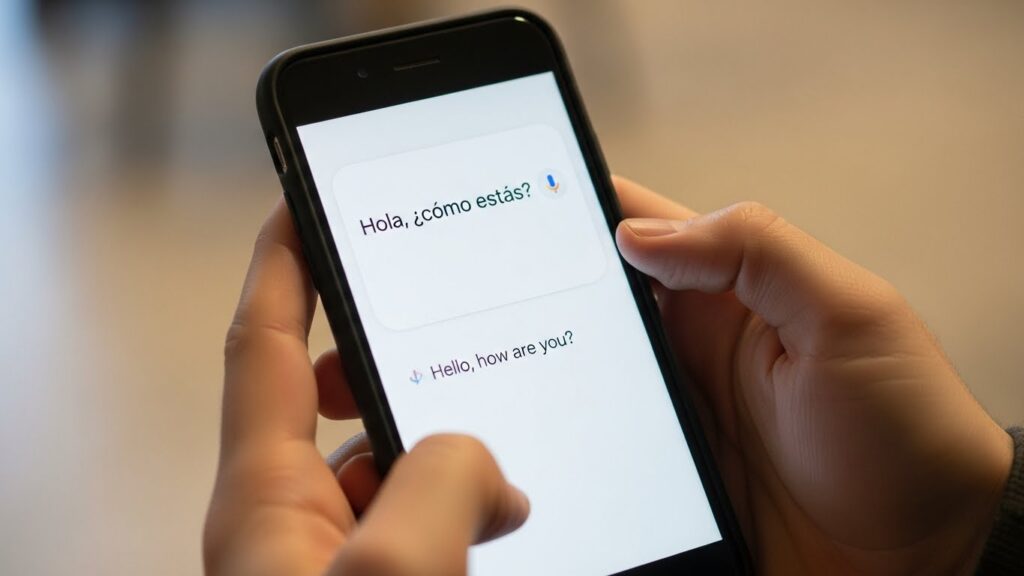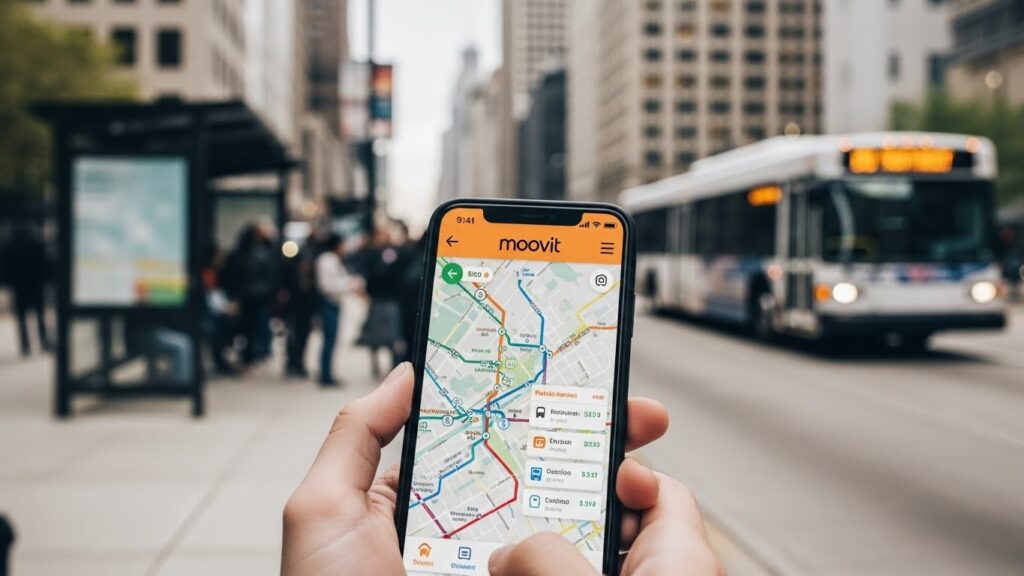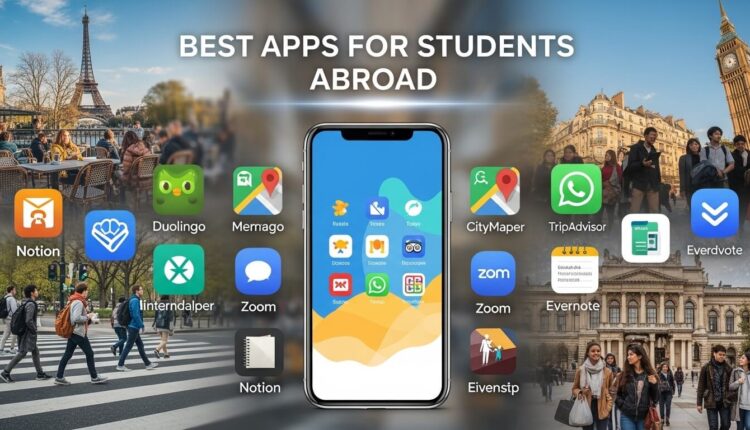Best Apps for Students Abroad: From Translation to Travel
Best Apps for Students Abroad: From Translation to Travel. The airplane hums quietly beneath you. You scroll through playlists, check your passport for the third time, and take one last glance at your family chat before switching to airplane mode. Ahead lies an entire new world — new city, new language, new rules. You’ve planned your courses, secured your housing, maybe even practiced a few local phrases. But what most students don’t realize is that the moment you land, your digital life becomes your survival kit.
Picture it: you step off the plane and everything you thought you knew fades in a rush of sensory overload. Signs are unreadable, your SIM card refuses to connect, and the coffee menu looks like hieroglyphics. Suddenly, independence feels more like isolation. You’re not just studying abroad — you’re rebooting your entire life in a foreign operating system.
And that’s where the right apps become more than convenience — they become connection, confidence, and calm.
The New Backpack: Digital Essentials for the Global Student

For past generations, preparation for studying abroad meant folding maps, packing travel dictionaries, and hoping for the best. In 2025, it means curating a “digital backpack” — a collection of apps that help you communicate, travel, budget, and belong.
According to the Institute of International Education (IIE), over 6.4 million students studied abroad in 2024, and 93% relied daily on at least one lifestyle or productivity app to stay organized, manage communication, and reduce stress. These apps have quietly become the emotional and practical scaffolding of student life overseas.
It’s no coincidence. Research from the QS International Student Survey (2024) found that students who use tech-assisted adaptation tools report 37% lower stress levels during their first three months abroad. Translation apps ease the panic of being misunderstood, finance apps remove the fear of overspending, and navigation tools replace the dread of getting lost with the thrill of discovery.
The shift is cultural as much as technological — studying abroad isn’t just about geography anymore; it’s about digital geography. The better equipped your phone is, the faster you integrate, connect, and explore.
From Overwhelm to Empowerment
Every student abroad experiences the same rollercoaster — excitement giving way to confusion, then resilience. One survey by NAFSA (2024) revealed that 61% of international students felt “digitally unprepared” upon arrival in their host country, underestimating how many small daily tasks required new tools. From translating grocery labels to splitting rent payments in another currency, every interaction demanded adaptation.
The solution wasn’t to study harder — it was to prepare smarter. Apps like Google Translate, Citymapper, Wise, and Meetup became lifelines, transforming fear into fluency and strangers into friends.
So if you’re planning your study abroad adventure, think beyond visas and packing lists. The students who thrive abroad aren’t the ones with the heaviest suitcases — they’re the ones who’ve already downloaded the tools to navigate their new world.
This guide will show you how. From translation to travel, budgeting to belonging, we’ll explore the best apps that help students abroad turn every challenge into a story worth telling — and every download into a decision that changes their journey.
Because when you’re thousands of miles from home, every tap counts.
Translation & Communication — Break the Ice, Not the Language
The first few days abroad are a whirlwind of sounds, signs, and smiles you don’t yet understand. You want to connect, but suddenly even simple tasks — ordering coffee, asking for directions, or greeting a classmate — feel like decoding a riddle.
Every international student knows that first awkward pause: when your brain races to translate a thought, but your mouth stays frozen. For many, that moment becomes the first crack in their confidence.
But it doesn’t have to.
Because today, communication apps are no longer just tools — they’re bridges to belonging. They turn fear into fluency, isolation into connection, and confusion into curiosity.
The Silent Challenge: When Words Become Walls
In a 2024 survey by the Institute of International Education (IIE), 68% of international students said language barriers were the number-one cause of social anxiety during their first semester abroad. Many described feeling “embarrassed,” “invisible,” or “left out” in group conversations.
Language difficulties don’t just block words — they block belonging. When you can’t join a joke or understand small talk, loneliness grows faster than culture shock. But this is where modern translation apps have rewritten the narrative.
The Digital Language Lifesavers
🗣️ Google Translate — The Everyday Hero

With support for over 130 languages and real-time camera translation, Google Translate helps students decode everything from street signs to homework assignments. Its offline mode means you can survive even when Wi-Fi doesn’t. Imagine standing in a grocery aisle in Madrid, unsure if “leche entera” means whole or skim milk — one camera scan, and problem solved.
“The first week in Spain, I used Google Translate to order my first meal without pointing at pictures,” says Rina, an exchange student from Malaysia. “That tiny moment felt like victory.”
💬 DeepL — For the Language Perfectionists
Students studying in Europe often prefer DeepL for its more natural phrasing and tone. It’s especially useful for writing academic essays or emailing professors, ensuring that cultural nuances don’t get lost in translation.
Data from QS (2024) found that students who used DeepL or similar AI-powered translators reported 35% higher communication confidence in their first three months abroad.
🌍 HelloTalk & Tandem — Where Tech Meets Humanity
Translation is only half the equation; conversation completes it. Apps like HelloTalk and Tandem connect you with native speakers eager to exchange language practice. You teach them yours; they teach you theirs.
It’s not just grammar — it’s friendship.
A simple chat about favorite foods can evolve into shared lunches, language swaps, or weekend trips. In a recent NAFSA 2024 report, students who regularly engaged in language exchange apps reported 40% faster language acquisition and significantly lower feelings of isolation.
The Emotional Transformation
Every “wrong word” abroad carries a story — the time you accidentally complimented your professor’s dog instead of their lecture, or mixed up “bill” and “beer.” But with translation and communication apps, those mistakes become milestones.
They turn cultural confusion into laughter, and laughter into learning. The moment you start joking in another language, you’ve crossed from “visitor” to “participant.”
So before you land, download your allies:
📱 Google Translate for confidence,
📱 DeepL for clarity,
📱 HelloTalk or Tandem for connection.
Because belonging begins when you can say hello — and understand the answer.
Finance & Budgeting — Spend Smart, Stress Less
You’ve just landed. The jet lag hasn’t faded, and already your wallet feels lighter. A cappuccino costs twice what you expected. Your card gets declined at the supermarket because your home bank flagged “suspicious foreign activity.” Rent is due in a currency you barely understand, and you realize — fast — that managing money abroad is a full-time skill no one teaches in orientation.
Financial stress doesn’t care how adventurous you are. It creeps in through currency conversions, hidden ATM fees, and the sudden panic of seeing your balance drop faster than your motivation on a Monday morning.
For international students, budgeting isn’t optional — it’s survival.
The Global Reality: When Freedom Meets Financial Pressure
According to ICEF Monitor (2024), over 60% of international students list financial management as their top stressor abroad, ahead of homesickness and academic pressure. Many arrive with savings, scholarships, or part-time job plans — but the unpredictability of exchange rates, international banking delays, and foreign transaction fees often disrupt even the most careful plans.
A student at the University of Amsterdam described it best:
“It wasn’t the rent or tuition that scared me. It was the little things — a coffee here, a bus ticket there — and realizing I had no idea what that added up to in euros.”
The emotional toll is real. Financial insecurity can quickly translate into social isolation — skipping dinners out, avoiding travel, saying no to experiences that define study abroad. But digital finance tools are changing that narrative, giving students not just control, but clarity.
The Apps That Make Every Dollar (and Euro) Count
💳 Revolut — Your Global Wallet in One App

Revolut has become a go-to for students abroad, offering multi-currency accounts, fee-free international transfers, and built-in budgeting tools. With a few taps, you can exchange currencies at live market rates, freeze your card instantly if it’s lost, and even set daily spending limits.
“Revolut saved me when my debit card got stuck in an Italian ATM,” says Jorge, a student from Brazil. “I froze it instantly, then used my virtual card to pay for my train ticket. I didn’t lose a minute.”
🌍 Wise (formerly TransferWise) — The Budget-Smart Transfer Hero

For students receiving money from home, Wise eliminates hidden exchange fees. It’s available in 170+ countries and supports real mid-market exchange rates. Parents love it for reliability; students love it because it makes international allowance transfers transparent and fast.
💰 N26 — The Digital Bank Built for Mobility
Based in Europe, N26 offers real-time spending insights, expense categorization, and instant notifications — no waiting for monthly statements. It’s perfect for students juggling tuition, rent, and weekend travel.
🧮 Splitwise & Mint — For Group Living and Big-Picture Budgeting
Living with roommates abroad? Splitwise prevents friendship-ending bill drama by tracking shared expenses and reminding who owes what. Mint, on the other hand, gives an aerial view of all your accounts and spending patterns — helping you plan, not just react.
The Freedom of Financial Literacy
Money management isn’t just about numbers — it’s about freedom. When you know where your money is going, you say “yes” more — to experiences, to friendships, to travel.
The QS Global Student Index (2024) reports that students who use digital budgeting tools are 46% more likely to travel and participate in local events, citing reduced “financial anxiety” as the main reason.
A student in France put it simply:
“Before Revolut and Wise, I was scared to spend. After I learned to track everything, I started living — not just surviving.”
Pro Tips for Money-Savvy Students
- Set up your accounts before takeoff. Some apps require ID verification that can take a few days.
- Avoid ATM withdrawals with conversion fees. Use app-based exchanges instead.
- Create a “travel fund” in your app. Many tools let you round up purchases into savings automatically.
- Always carry at least one backup payment method. (Tech is powerful, but Wi-Fi isn’t always your friend.)
Set up your digital wallet before takeoff — the right one can save you hundreds in hidden fees.
Travel & Navigation — Never Get Lost (Even When You Want To)
The first time you step onto a bus in a foreign city, it’s both thrilling and terrifying. The route names sound like code words, the announcements blur into static, and the driver looks at you with the polite patience reserved for confused tourists. You smile, nod, and hope you’re heading in the right direction.
That’s the unspoken reality of studying abroad — you will get lost. And that’s okay. Because getting lost abroad often leads to your best memories: the wrong bus that drops you near a hidden café, the detour that leads to a street festival you never planned to attend.
But there’s a fine line between “lost and loving it” and “lost and panicking.” The difference? The right travel and navigation apps.
When Independence Meets Uncertainty
For international students, mobility equals freedom. But it also brings new fears — safety, affordability, and access. According to NAFSA (2024), 42% of students studying abroad said transportation anxiety (getting lost, missing buses, or navigating train systems) was their biggest daily stress during their first month.
Many reported skipping social or academic events because they weren’t confident in local navigation. Yet those who used digital travel apps — from route planners to local transit guides — reported 42% higher life satisfaction and social participation.
Technology, in this sense, becomes a gateway to both exploration and empowerment.
Your Digital Compass: Apps That Move With You
🚇 Citymapper — For the Urban Explorer
Citymapper is a must for anyone studying in major cities like London, Paris, Tokyo, or Berlin. It combines real-time transit updates, walking routes, and even e-scooter or bike-share options — all in one app. It doesn’t just tell you where to go; it tells you how to get there fastest, cheapest, or with the fewest transfers.
“Citymapper made me feel like a local within a week,” says Priya, an exchange student in Berlin. “It even warned me about delayed trams before I left my dorm.”
🚌 Moovit — Your Transit Translator

Perfect for students in regions where local bus systems are less predictable. Moovit provides real-time updates, crowd-sourced data, and GPS-based navigation, so you always know when your ride is coming — and when to run.
🌍 Google Maps — The Timeless Classic, Reimagined
Still unbeatable for global reliability. Beyond basic navigation, its offline maps feature is a lifesaver when Wi-Fi or data fails. Students can download entire city regions before leaving home — perfect for countries with patchy coverage or expensive roaming fees.
Quick Tip: Save “Home,” “University,” and “Supermarket” as starred locations before your flight. Your first days abroad will be 10x easier.
🚆 Rome2Rio — The Trip-Planning Powerhouse
Weekend trip? Rome2Rio maps routes across trains, buses, flights, and ferries — complete with time estimates and fare comparisons. It’s ideal for multi-country explorers who want to stretch their budgets while seeing more.
🚌 FlixBus & BlaBlaCar — Budget Travel Meets Flexibility
Europe’s backbone of student travel. FlixBus connects over 3,000 cities affordably, while BlaBlaCar (a ridesharing app) helps students split costs on intercity trips safely and sustainably.
The Freedom of Knowing You Can Move
Movement isn’t just physical — it’s psychological. The first time you navigate a new city solo, something changes inside you. Confidence replaces caution. You start to walk with purpose, not hesitation.
Research by QS (2024) found that students who traveled at least twice monthly — even short weekend trips — reported 42% higher satisfaction and 30% stronger cultural adaptability than those who stayed within campus limits.
In short: travel isn’t a luxury; it’s an education. Every train ticket, every bus ride, every GPS reroute builds resilience and story-worthy memories.
“I got lost on my way to a language class in Seoul,” says Daniel, a student from Kenya. “I ended up sharing a meal with a local couple who helped me find the way. That’s when I realized — getting lost isn’t failure, it’s connection.”
Smart Travel Tips Before You Board
- Download offline maps before your flight. Wi-Fi rarely cooperates when you need it most.
- Turn on location sharing with a trusted friend for safety during late-night trips.
- Use transport cards linked to your phone wallet — many cities now allow tap-in access via Apple Pay or Google Pay.
- Plan weekend adventures early — fares often spike on Fridays.
Your next adventure is one tap away — but plan it smart. Download your travel toolkit before you miss the bus (literally).
Social & Lifestyle — Find Your People, Build Your World
No matter how many apps you download, maps you save, or meals you master — every international student eventually realizes this: the hardest part of living abroad isn’t finding your way around the city. It’s finding your place in it.
The lectures, the cafés, the weekend trips — they’re unforgettable. But without community, even the most beautiful cities can feel hollow. This is where technology — the same tool that guides your routes and translates your words — becomes your emotional lifeline.
Because behind every glowing screen is someone else, just like you — trying to connect, belong, and make this foreign place feel like home.
The Hidden Loneliness of Studying Abroad
According to the 2024 International Student Wellbeing Report (ISWR), nearly 60% of international students report feeling socially isolated or homesick during their first 3 months abroad.
The same report found that students who actively used social and lifestyle apps (from local event platforms to mental wellness tools) were 47% more likely to form meaningful friendships within their first semester.
That’s because belonging doesn’t happen by accident — it happens by intention.
Digital Tools That Build Real Communities
🎉 Meetup & Eventbrite — Find Your Crowd
Whether it’s yoga in the park, a salsa class, or a photography walk, Meetup and Eventbrite are where international students go to meet locals and expats with shared interests.
“I joined a poetry night I found on Meetup,” says Alejandra, an exchange student in Prague. “By the end of the semester, I wasn’t just reading my poems — I was translating them into Czech with new friends.”
📚 Facebook Groups & Reddit Communities — Your Virtual Campuses Abroad
From “Nigerian Students in Toronto” to “Erasmus Life Madrid,” these digital hubs connect you with peers who understand your struggles and share your celebrations. They’re great for housing tips, part-time job leads, and culture-specific advice.
According to QS (2024), 72% of international students said joining online student groups helped them overcome early homesickness faster.
🌿 Headspace & Calm — Your Mind Matters, Too
Culture shock isn’t just social — it’s emotional. Meditation and mindfulness apps like Headspace and Calm have become essential for students dealing with stress, homesickness, and mental fatigue.
In a 2023 Global Mind Health Study, students who meditated at least 3 times per week reported 30% better emotional regulation and 25% lower anxiety related to cultural adjustment.
💬 Bumble for Friends & Patook — Friendship, Not Flirting
These social networking apps are built specifically for platonic connections. They match you based on shared interests, goals, and hobbies — a godsend for students moving alone to cities where they know no one.
“I met my best friend in Paris through Bumble for Friends,” recalls Dami, a Nigerian student. “We explored the city together, and five years later, she’s still my travel buddy.”
From Connection to Confidence
Once you find your circle abroad — even a small one — your entire experience changes. You eat better, travel more, laugh louder, and study smarter.
Suddenly, this foreign city stops being “the place you’re staying” and becomes “your city.”
Research backs this up. The World Education Services (2024) found that students who engaged in at least one local community event or hobby group per month showed:
- +40% increase in academic engagement
- +33% improvement in self-reported happiness
- 2x likelihood of extending their stay or returning post-graduation
That’s the power of connection — it turns survival abroad into thriving abroad.
Bonus: Lifestyle Apps That Simplify Everything
| Need | App | Why It Helps |
| 🏠 Housing | HousingAnywhere, Uniplaces | Verified listings for student-friendly apartments |
| 🍔 Food | Too Good To Go, HappyCow | Save money and eat well — no food FOMO |
| 🏋️ Fitness | ClassPass, Strava | Join local gyms or outdoor communities |
| 💰 Expense Sharing | Splitwise | Track rent, bills, and shared meals fairly |
Each of these tools helps you settle in faster — because the less you stress about logistics, the more you can invest in memories.
Emotional Close: The App That Matters Most
After a semester abroad, you’ll delete most of these apps.
But what you’ll keep are the numbers of the people you met through them — the ones who showed you that “foreign” can become “familiar.”
So download the apps, yes. But remember: the goal isn’t to live through your phone. It’s to use it as a passport to real-world connection.
The best app abroad? Courage.
Because in the end, the technology only opens the door — you’re the one who walks through it.


